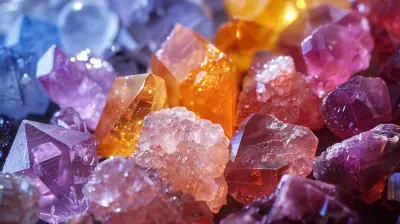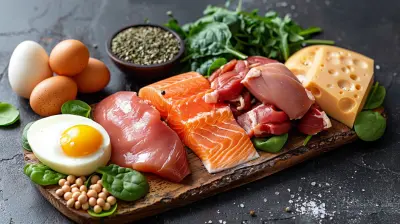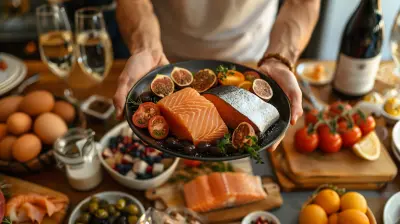Vitamin E and Its Benefits for Heart Health
25 July 2025
We all want to live longer, healthier lives, right? That means taking care of our hearts—the engines that keep everything running smoothly. One natural way to support heart health that often flies under the radar is Vitamin E. Yep, that humble vitamin tucked away in your multivitamin bottle might be doing way more for your heart than you realize.
In this article, we're diving deep into the world of Vitamin E and how it can be your heart’s best friend. We're not just talking about facts and figures—we're breaking it down in a way that makes sense, sticks with you, and maybe even inspires you to make a few smart lifestyle tweaks.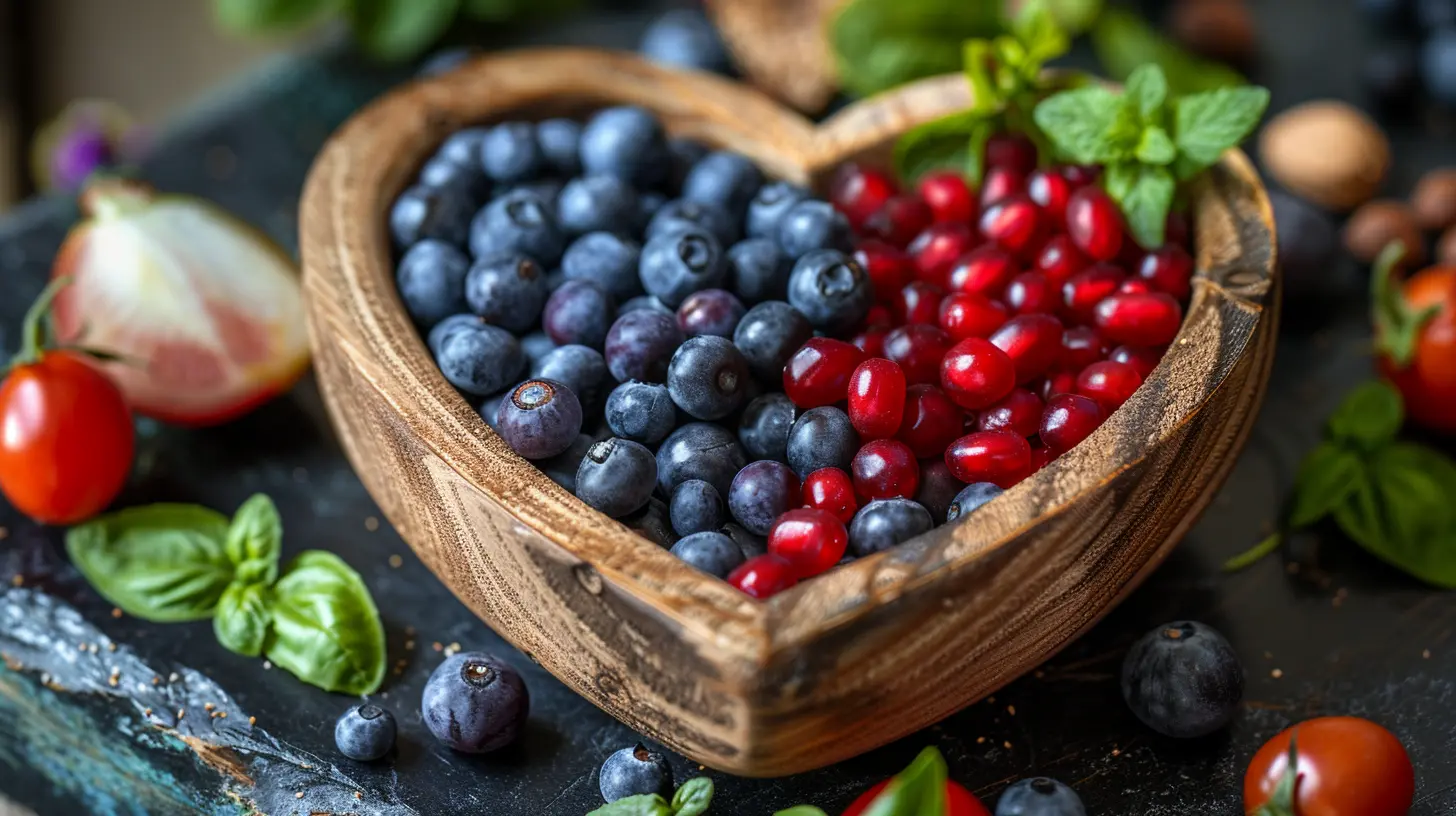
What Is Vitamin E, Really?
First things first. What even is Vitamin E?Vitamin E is a fat-soluble antioxidant. Wait—before your eyes glaze over, let’s unpack that. "Fat-soluble" just means your body stores it in fat tissue and uses it when needed. And "antioxidant"? Think of that as a superhero that fights off harmful villains called free radicals. Free radicals can damage cells, accelerate aging, and yes—wreak havoc on your heart.
Vitamin E isn’t just one thing, either. It’s actually a group of eight compounds—four tocopherols and four tocotrienols. But alpha-tocopherol is the form most commonly found in supplements and food, so that’s what our bodies use the most.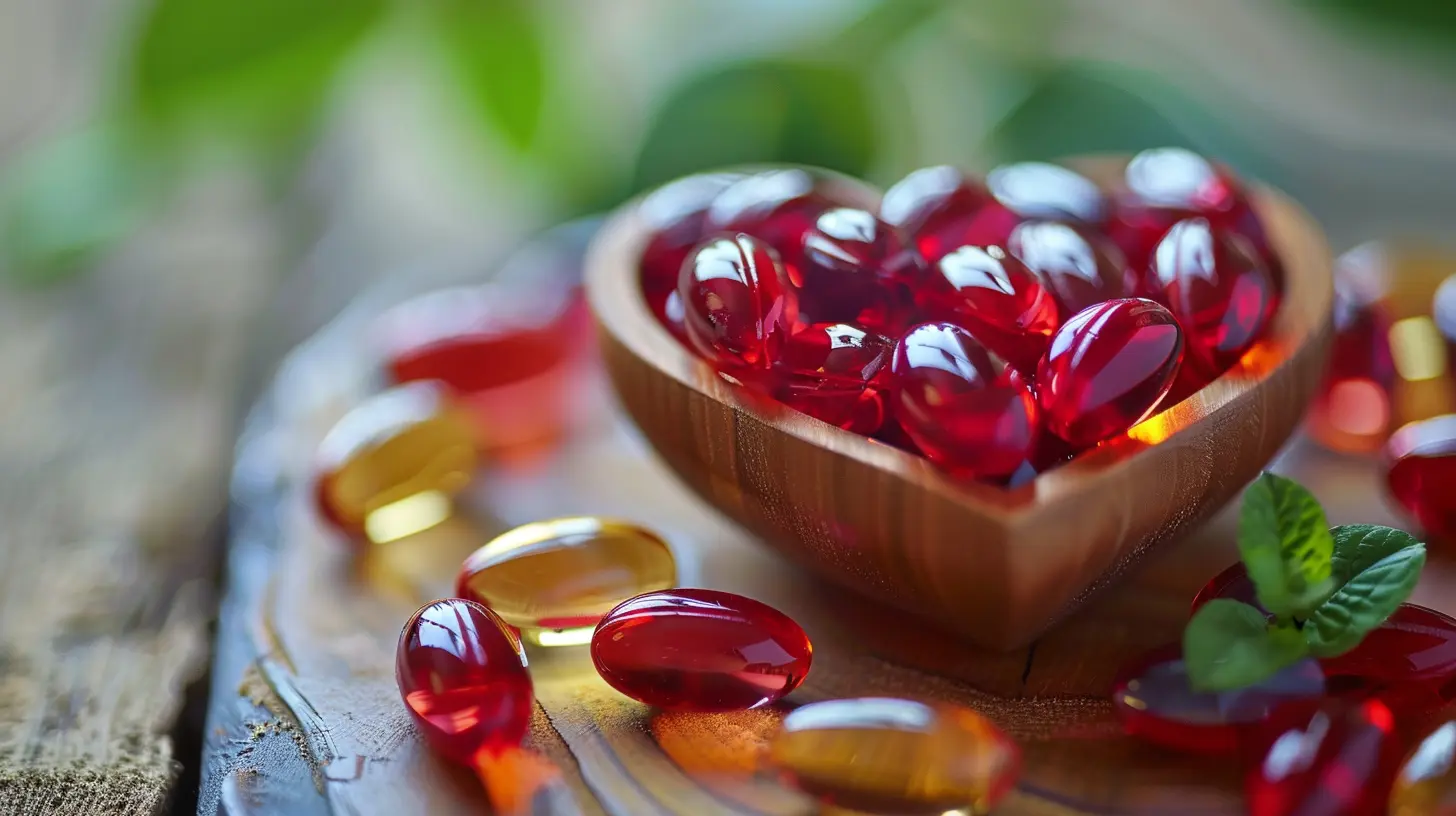
Why Heart Health Matters (Duh, But Seriously)
Let’s slow down for a sec. Before we get into how Vitamin E helps, it’s important to understand why you should care about your heart in the first place.Your heart is a pump—one that keeps blood, oxygen, and nutrients flowing throughout your body. If it stops or struggles, well...everything else goes downhill fast. Heart disease is still the leading cause of death worldwide. It’s sneaky, too—you might not know it’s an issue until something serious happens.
So yeah, taking care of your ticker is absolutely essential.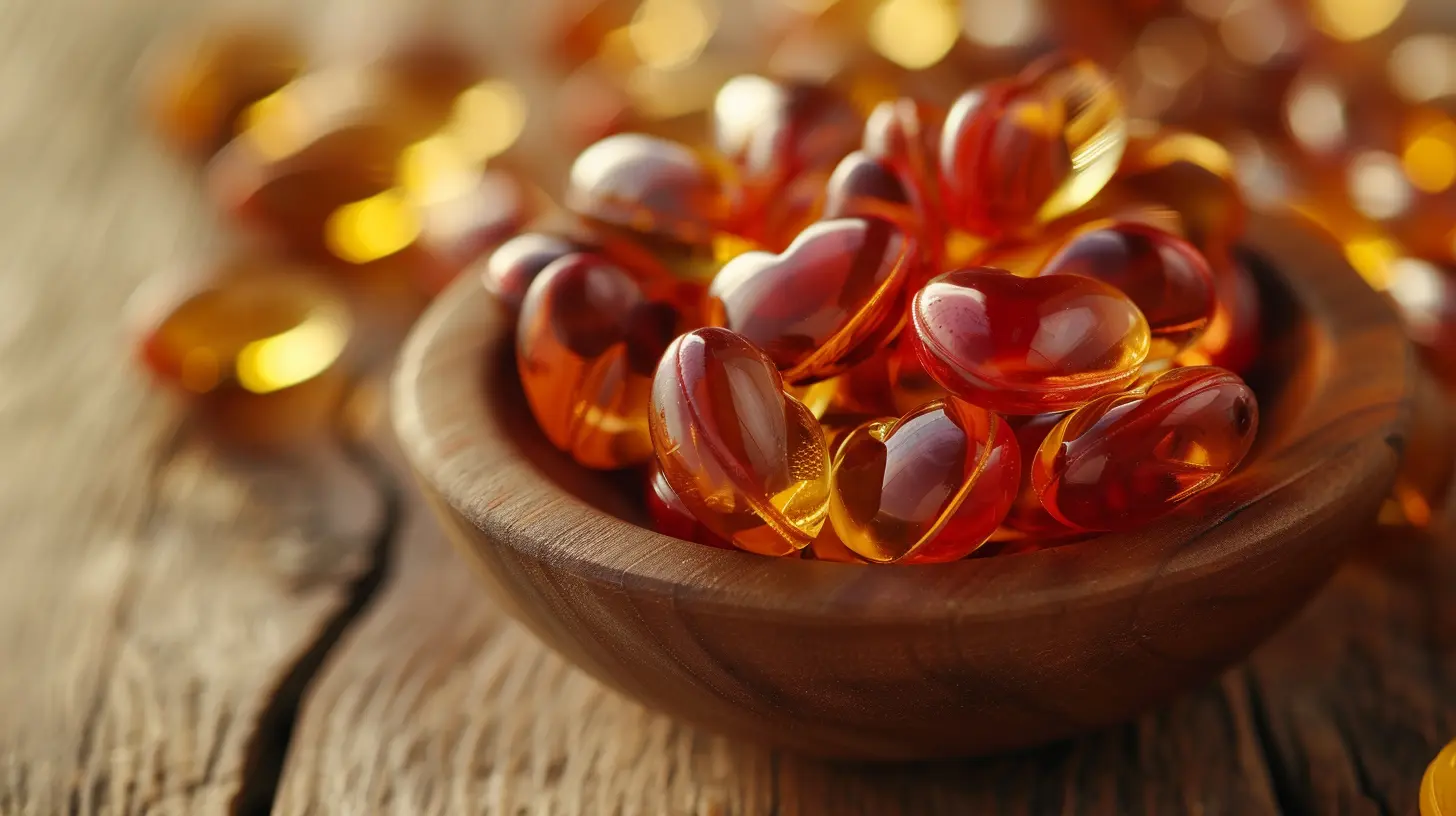
How Vitamin E Supports Heart Health
Okay, so what makes Vitamin E such a heart hero? Let’s dive into the science—minus the jargon.1. Fights Oxidative Stress
Imagine your body as a shiny new car. Over time, rust starts to form from exposure to the elements. That’s kind of what free radicals do inside your body—they cause internal "rust."Vitamin E, being an antioxidant, helps prevent this rusting process, especially in your cardiovascular system. When your arteries start to corrode or get damaged, that’s when plaque builds up—and you do NOT want plaque in your arteries.
Vitamin E steps in like a repair crew, cleaning up the mess and protecting your cells from going haywire.
2. Prevents LDL Cholesterol from Oxidizing
You’ve heard about “bad” cholesterol, aka LDL, right? It’s not always evil—but when it oxidizes (thanks, free radicals), it turns into a sticky, dangerous sludge that clings to artery walls and forms plaque.Here’s where Vitamin E shines. It helps prevent this oxidation, which means less plaque, better blood flow, and a happier heart.
3. Improves Blood Vessel Function
Your blood vessels should be flexible and relaxed, not stiff like old garden hoses. Vitamin E helps by improving something called endothelial function (fancy term for how well your blood vessels operate).When your vessels are lining up (pun intended), your blood flows freely and your heart doesn’t have to work overtime.
4. Reduces Inflammation
Chronic inflammation is like a silent alarm bell—linked to tons of diseases, including heart disease. Vitamin E has anti-inflammatory properties that help calm that internal chaos.By putting out those microscopic fires, Vitamin E helps reduce your overall risk of heart-related issues.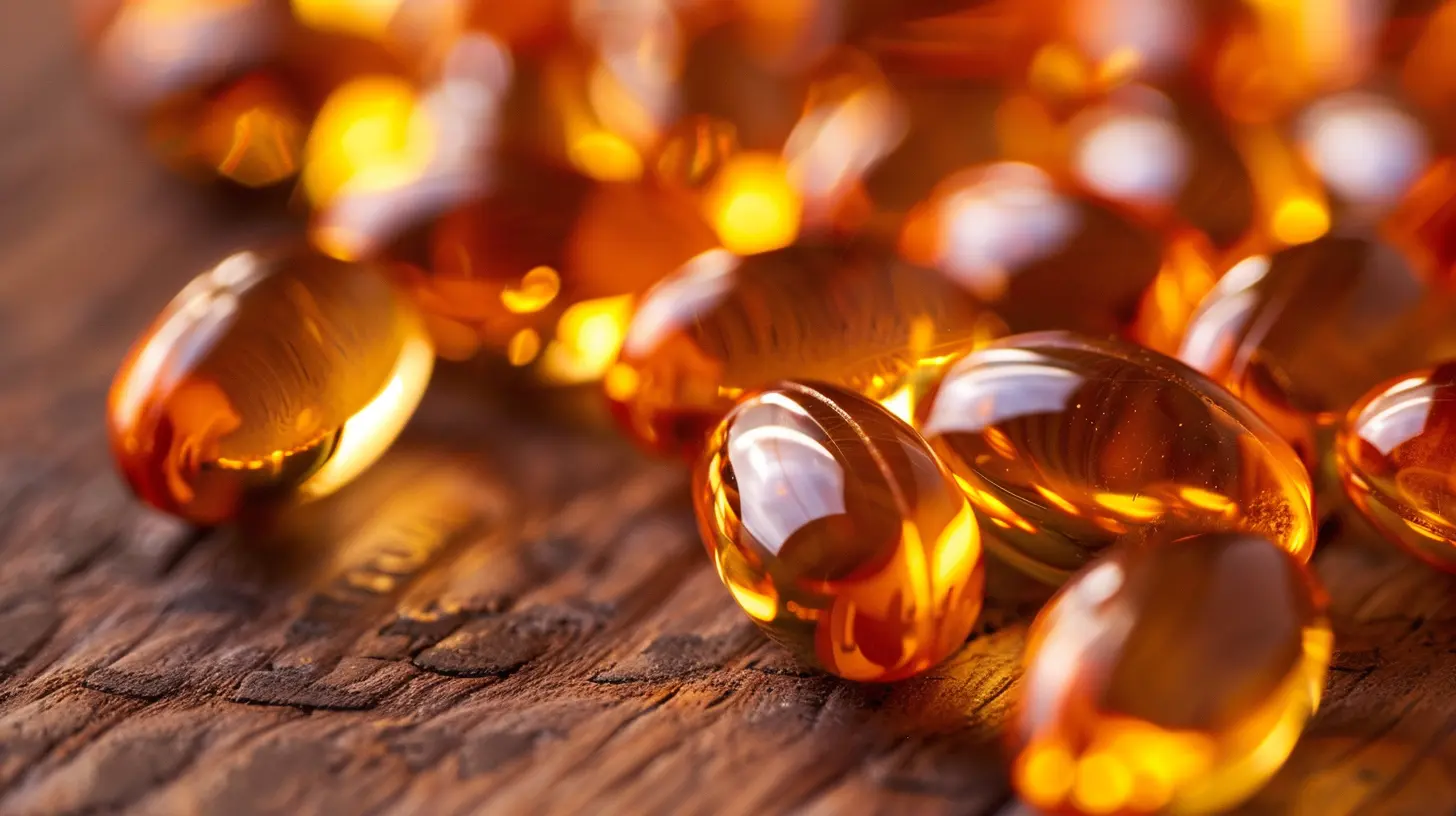
Foods Rich in Vitamin E
Good news: You don’t have to rely on supplements to get your Vitamin E fix. Mother Nature’s already packed it into plenty of delicious foods.Here are some top sources:
- Nuts and seeds (almonds, sunflower seeds, hazelnuts)
- Vegetable oils (wheat germ oil, sunflower oil, safflower oil)
- Leafy greens (spinach, kale, Swiss chard)
- Avocados (everyone's favorite toast topper)
- Seafood (shrimp, salmon, rainbow trout)
If you love salads, smoothies, stir-fry, or trail mix—you’re in luck. Just sprinkle in a few of these foods, and you're golden.
How Much Vitamin E Do You Actually Need?
For most adults, the recommended daily intake of Vitamin E is about 15 mg (or 22.4 IU). That’s not a lot—and you can typically hit that target through food alone if you eat a balanced diet.However, if you’re not getting enough, supplements can help. Just be cautious. High doses of Vitamin E—especially synthetic versions—can interfere with blood thinning meds or cause more harm than good. Always consult a healthcare provider before popping pills like candy.
Can You Have Too Much of a Good Thing?
Yes, absolutely. More doesn’t always mean better.Mega-dosing on Vitamin E might sound like a heart-health hack, but it can backfire. High doses (especially above 400 IU daily) have been linked to increased bleeding risk and even a higher risk of stroke in some studies.
Balance is key. Think of it like seasoning your food—too little, and it’s bland; too much, and you ruin the whole dish.
The Vitamin E Supplement Debate: Natural vs Synthetic
Not all supplements are created equal. When choosing a Vitamin E supplement, check the label.- Natural Vitamin E is usually labeled as “d-alpha-tocopherol.”
- Synthetic Vitamin E? That’ll be “dl-alpha-tocopherol.”
Natural forms are typically better absorbed and more effective. Think of it like fresh-squeezed juice versus something from concentrate.
Who Should Consider Supplementing?
Let’s be real—not everyone's diet is perfect. Some folks might benefit more from a daily dose of Vitamin E, especially if they:- Have digestive disorders that affect fat absorption (like Crohn’s or cystic fibrosis)
- Are on low-fat diets (since Vitamin E is fat-soluble)
- Smoke (which increases oxidative stress)
- Have a family history of heart disease
Still, don’t jump into supplementing without talking to a doc. Your heart is too important for guesswork.
Lifestyle + Vitamin E: The Dynamic Duo
Vitamin E is awesome, but it’s not a magic bullet. For real heart health gains, you’ve got to pair your nutrients with smart lifestyle choices.- Exercise regularly—even brisk walks make a difference.
- Cut out smoking—seriously, it’s a heart assassin.
- Manage stress—your heart feels every ounce of it.
- Sleep well—your body heals while you snooze.
- Eat a balanced diet—focus on whole foods, not processed junk.
Think of Vitamin E as one member of your heart health dream team—alongside sleep, movement, and mindset.
Wrapping It Up: Vitamin E Is Your Heart’s Unsung Hero
If your heart had a love language, Vitamin E might be how it says “thank you.” It quietly works behind the scenes, fighting free radicals, lowering inflammation, and keeping your arteries clear and flexible.In a world full of complex health advice, this one’s simple: Eat well, move often, and give Vitamin E the attention it deserves.
Want to give your heart some love starting today? Maybe toss a handful of almonds into your snack bag or sauté your greens in a little sunflower oil. Small changes, big impact.
Your heart will totally thank you.
FAQs About Vitamin E and Heart Health
Is Vitamin E good for lowering blood pressure?
While Vitamin E isn’t a direct blood pressure medication, its antioxidant and anti-inflammatory properties can help improve overall cardiovascular health, which may indirectly support healthier blood pressure levels.Can Vitamin E prevent heart attacks?
There's no magic nutrient that guarantees prevention, but Vitamin E can reduce several risk factors that lead to heart attacks like oxidized LDL cholesterol and artery inflammation.What’s the best way to absorb Vitamin E?
Vitamin E is fat-soluble, so pair it with healthy fats in meals—think avocado toast, nuts, or a drizzle of olive oil on your veggies.all images in this post were generated using AI tools
Category:
VitaminsAuthor:

Arthur McKeever
Discussion
rate this article
1 comments
Isabelle Lawrence
Thank you for this informative article on Vitamin E and heart health! It's encouraging to learn how this nutrient can contribute to cardiovascular well-being. I appreciate the clarity and insights you've provided, making it easier for readers to understand its benefits.
August 2, 2025 at 2:55 PM

Arthur McKeever
Thank you for your kind words! I'm glad you found the article informative and helpful. Your support means a lot!
